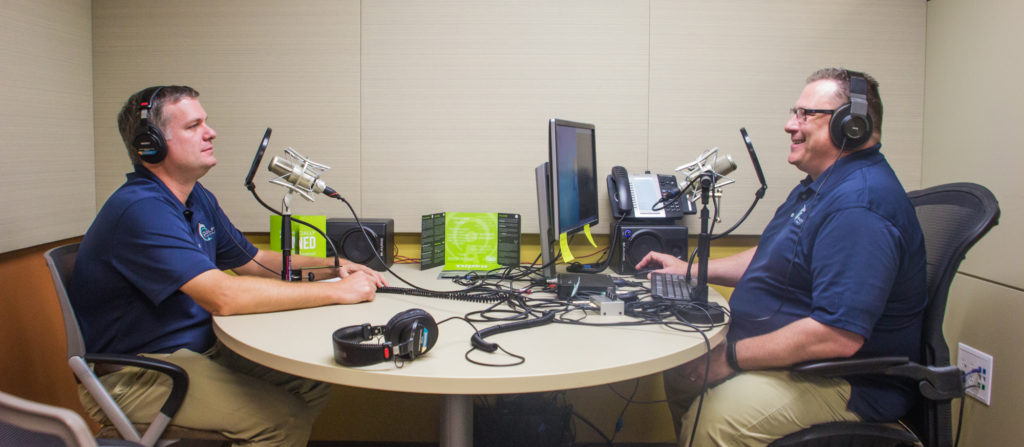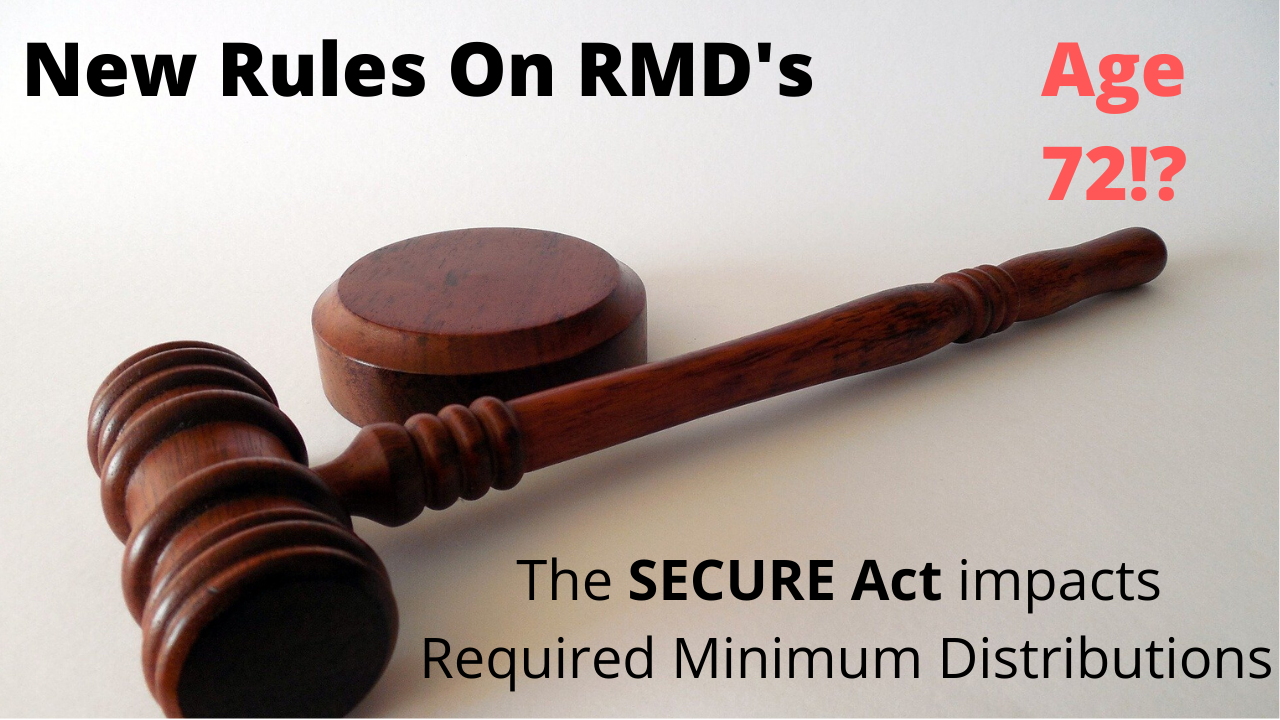How To Avoid Taxes On Capital Gains
Summary:
Capital gains are a good thing. You made a profit on an investment. However, the IRS wants to tax those gains.
In this show we talk about the different types of capital gains and provide specifics on how to pay 0% in taxes.
If you have some capital gains that you are thinking about taking, listen to this show first and potentially save some money!
Watch Video Version:
Podcast Transcript
Daniel Wendol 0:00
Capital gains are a good thing. That means you invested some money in something and it went up in value, and then you sold it. And when you sell it, the IRS wants tax on those gains. Today we’re going to discuss how you can have those gains and pay zero tax.
Hello, and welcome to another Dolphin Financial Radio show with me Dan Wendol, owner of the Dolphin Financial Group. Alongside me is Tony shore. Happy New Year, Tony. This is our first show in 2020. How do you like 2020 so far?
Tony Shore 1:00
Well, first of all, I never thought I’d live this long. No! I’m going to live forever. Time flies when you’re having fun. Where did the time go?
Daniel Wendol 1:00
Good question. You started doing a podcast with me and the years have flown by.
Tony Shore 1:28
They have flown by. It’s been a fun ride, hasn’t it?
Daniel Wendol 1:32
It has. I hope you had a good holiday. I put the podcast we did on holiday classic movies. The lessons financial lessons learned.
Tony Shore 1:44
Yeah, that replayed last week. We did a redo of that one. That is one of my favorite shows we’ve ever done.
Daniel Wendol 1:52
And so now we’re going to do something boring to offset that. We’ll start off the new year with a bang talking about avoiding tax. I’ll add a little bit of excitement by saying before we get too far into this, we need need to have one of my kids do a quick disclaimer. Let’s put him on right now to start off the new year.
Zachary 3:06
Dan Wendol or Dolphin Financial Group do not provide tax, legal, or accounting advice. This podcast is for informational purposes only and is not intended to provide tax or accounting advice.
Daniel Wendol 3:23
Okay, so that was my boy Zachary talking about how I’m not going to give tax advice. But what we are going to do is talk about capital gains, which is a tax issue. So before we get into it, Tony, do you even know what a capital gain is? I’m not asking you if you’ve ever experienced one. I’m just asking if you know what they are.
Tony Shore 3:40
Capital gains tax? Yeah, that’s tax on the interest you earn on your investments.
Daniel Wendol 3:47
So it’s not necessarily interest. It could be anything stock art, jewelry, real estate. If you buy it for $100 and sell it for $300, you have a $200 capital gain. This ha s nothing to do with an IRA. If you have capital gains in an IRA it doesn’t matter because IRAs are taxed as ordinary income, no matter what. We’re talking about non IRA assets here that you’re investing and getting a gain. The most common capital gain that I see with my clients is a sale of a house, not their primary house, a rental house or an investment property. So they’ll have a gain on that. But the other biggie is stocks. People will buy a stock for 20 bucks sell it for 25 and they have a $5 gain. The government wants their revenue to come off of that gain. So, what a lot of people do is they offset the gains with losses. Ever hear of tax loss harvesting, Tony?
Tony Shore 4:58
I’ve heard somebody mentioned Tax loss harvesting, but I do not know what it means.
Daniel Wendol 5:04
What do you envision? What is your mental image of a tax loss harvester? Do they have overalls on?
Tony Shore 5:15
No. I think harvesting tax losses is taking advantage of lowering taxes or making money by not paying taxes. I don’t know.
Daniel Wendol 5:27
You grew up in the Midwest, you got to have a better image of tax loss harvesting.
Tony Shore 5:32
Well, harvesting means to collect.
Daniel Wendol 5:36
Well, in the case of tax loss harvesting, we’re talking about…let’s say you throughout the year you buy and sell stocks, and in one investment you lost $6,000 and then in another investment, that same year, you you made $10,000. So what you could do is you can offset these, and you can have the $6,000 loss go against your $10,000 gains. So you truly only have a gain of $4,000. So tax loss harvesting is selling some winners to match the losers, to try and get your tax liability down to zero. People do that all the time. And that’s short term tax loss harvesting. But we’re not going to talk about that. We’re going to talk about long term. Before I get into it, what is short term versus long term? Short term gains – If you hold something for less than a year. Long term – 366 days or more. We’re not talking calendar year. A lot of people get confused on that. Why are you doing the show in January? It would have been better to tell me to sell it in December. It doesn’t work that way. That’s different. You want to hold it for 366 days, not within the calendar year. So selling something in January might be a long term gain.
Tony Shore 6:56
Sure. So over a year, if you hold something for over one year or 12 months, then it’s long term. If it’s 12 months or less it’s short term.
Daniel Wendol 7:07
That’s why some of the money managers I work with, they’ll design a product to hold it for 366 days or 370 days. And they’ll have that in in the prospectus or the offering. People will sometimes ask me why why did they put that in there? The reason being is because they’re showing you that this is going to be a long term capital gain. So if there is a gain, you’re going to pay a different tax rate. The importance is if you have a short term gain, less than a year, you’re paying ordinary income tax, whatever your ordinary income tax bracket is. If you have a long term capital gain, then you’re paying different tax rates. So that’s what we want to focus on. It’s important to know. Short term gains are ordinary income tax, we know ordinary income tax rates are 10%, 12%, 22%,24%. You know, these tax brackets. So you could have a short term gain and pay 24% tax on it. But if it’s a long term gain, you might pay nothing on it. So the tax rate for long term gains goes from zero to 20. So the highest is 20%, which is much better than a 24 or 32 or 37% tax. One little point before we move on from short term, you can carry off carry forward losses. So Tony, since you invested in that donut shop that never got off the ground? Well, it was going well, until the inventory kept disappearing.
Tony Shore 8:51
Yeah, that’s I was in the back and somehow the inventory disappeared.
Daniel Wendol 8:56
Well, you had some losses, right? Let’s say you had $20,000 in losses and you could only offset $5,000. So you have $15,000 in losses, what do you do? You can carry those forward, and every year you can write off $3,000. So you can carry that forward for the next five years as a very, very vivid reminder of how badly you lost money in the donut shop. Now let’s focus on how to not pay taxes. We don’t need to go into too much depth here because it’s very simple. Long term gains. The key is understanding the tax brackets. So let’s let’s just focus on a married couple because there’s different rates for single versus a married couple. What would you guess would be the maximum income a married couple could have and have zero percent capital gains tax rate? Meaning how much could they possibly make and if they have a gain, pay zero?
Tony Shore 9:57
Isn’t it like $100,000?
Daniel Wendol 10:02
Ah, pretty good. It’s $80,000. So it was, alright. If a married couple makes below $80,000 taxable income, they don’t pay any capital gains tax. So if they sell a $10,000 stock that they got for zero because they inherited at zero or something or they bought it at IPO, they don’t pay any tax on that $10,000 gain.
Tony Shore 10:28
Wow, I thought that amount went up with the Trump tax laws that were enacted to like $100,000 or over $100,000. But no?
Daniel Wendol 10:38
It did go up. They raised the amount of money you can make and pay zero on capital gains. Which by the way, could very well change during the election because the Democratic candidates are looking to switch this around and increase the capital gains tax rate. Let’s let’s focus on this $80,000. What does that mean? It’s taxable income. So, what is taxable income? You have deductions, you know, Trump raised the standard deduction, he basically doubled it. So for a married couple, the standard deduction in 2020 is $24,800. So that means you could take $24,800 off your income and then it says you are below $80,000. So, theoretically $104,800 in income.
Tony Shore 11:32
That’s the number I had heard about.
Daniel Wendol 11:35
You got there. I took the scenic route. You went straight there.
Tony Shore 11:39
That’s true. But I’m glad you clarified that that is only after the that deduction for married couples.
Daniel Wendol 11:46
So a married couple making $100,000 could have a capital gain tax bracket of zero. A lot of people have stock that they bought a long time ago or their spouse used to work for a company, and they got stock and they just never did anything with it. And so they inherited from Grandma, whatever it was, they said I’m not selling this. The main reason why people say they don’t want to sell this is because it’s worth too much. Meaning the gain is too high. And they say, well, we could donate to charity and write that off. You can. But if your income is such that you can sell it and pay zero percent tax, that’s the time to do it, versus the ordinary income tax rate of 10-12-22-24%. So this is a very strategic thing to do and it only applies to people who have capital gains.
Tony Shore 12:45
Well people will say, well, I don’t have capital gains. I don’t ever worry about that. I’m not in that category of super rich to have capital gains, but you know, average middle class people like myself, they have capital gains from time to time. As you head to retirement, you’re probably going to have capital gains on all those investments that you’ve had building up for retirement. Or should have.
Daniel Wendol 13:14
Right. Even if you have this little trading account and put $5,000 in there just to play with and now it’s worth $10,000…Well, this $5,000 capital gains, why pay any tax on if you don’t have to? You have to be strategic about it.
Tony Shore 13:30
Right. And that’s where you come in. And I want to point out the CNBC article that you and I were looking at about this that you pointed out to me. On CNBC, they had an article, these taxpayers can cash in their investments with zero capital gains taxes. It said you need to make sure that you work with a professional. Don’t go It alone it says. Work with a financial advisor and a CPA. So yeah, it says the path to tax free gains has plenty of landmines, for the uninitiated, so don’t go it alone. You can save a lot of money if you work with a trusted financial advisor or CPA. I think that is huge. And I’m not just doing that to plug you, Dan. I mean, obviously, if listeners want to find another fiduciary, who they know is going to look out for their best interests and understands this, great. However, I know there are a lot of so-called financial planners out there who just want to invest all your money in a fund so they can make money off that fund. Or they just want to sell you a variable annuity. They’re not really looking to work out all the math and the strategies to save you money looking at the big picture, which is what you do. Correct?
Daniel Wendol 14:53
That’s it and that’s a biggie Tony. I’ve run into a lot of people that just moved from New York and they meet and advisor and the first thing they did was sell everything because they have a new strategy. And then BOOM!, they get hit with a huge tax. They didn’t factor it in. By the way, you have to watch out for state tax. We’re just talking about federal tax. And I just talked about federal tax and I don’t worry about state tax because we live in sunny Florida. We don’t have state tax. But if you’re in another state listening to this, like Illinois and you have capital gains, you might pay zero federal tax, but you might be stuck with state tax. So you can’t you can’t fall victim to that.
Tony Shore 15:37
Like the example a married couple filing jointly – let’s say their in retirement, they have $20,000 of ordinary income and $50,000 of capital gains. If they use the right strategy, work with you, they’ll have zero in federal tax liability, they’ll have no tax liability on it. Wow, that’s amazing. However, if they live in certain states like Illinois for example, they could expect to pay $3,240 in state taxes. So, therein lies the reason that people move to Florida. Number one, obviously to be near to you, Dan, a lot of things are moving down there for that. Your lovely singing voice whatever, good looks and charm. They say weather, but every time I’m down there, it’s always raining too. So I don’t know if it’s the weather and it’s very hot in the summer. But one of the big things why people retire…it is warmer, seasonally…and no state taxes. Right?
Daniel Wendol 16:41
That’s it. That works to people’s advantage when they have gains. They don’t have to pay the state tax which is tough to avoid when you live in a state that taxes capital gains differently.
Tony Shore 16:51
I don’t think South Dakota has state taxes either and I don’t see that as a big retiring Mecca. So maybe it is more to do with you and the weather, Dan,
Daniel Wendol 17:02
I’m gonna stick with that. Although I was just in South Dakota, I loved it, so I’m not gonna knock it.
Tony Shore 17:07
Well, you were not there during the winter. Let’s just put it that way.
Daniel Wendol 17:13
You have to be strategic about it. You can’t just sell it because you think, Oh, I can sell this and not worry about state income tax. There’s a couple of other things you need to worry about. And this is very relevant to retirees. So I have a lot of people that like to retire. I like to get people to retire sooner than later. And they’ll retire in their early 60s. Then we start talking about Social Security. And we say let’s turn on Social Security later. Let’s delay it for you or your spouse. Let’s be strategic about it. So we go through that process. And then they say, well, I’m short on income. Where do we take it from? This is a perfect opportunity to start looking at strategically taking capital gains, because your income is lower than it will be later when you turn on Social Security. A lot of people go to their IRA to take it, but why not take some capital gains? Your tax bracket is so low, that you’re going to have zero taxes, as you wait to turn social security on. They do tax Social Security. The IRS will take part of your Social Security payments, if you have certain income thresholds. You have to be careful that, hey, I’m taking capital gains, I’m only paying 0% or 15% on capital gains, but you’re raising your overall tax bracket. Now all of a sudden, more of your Social Security is being taxed. So you can’t just do this in isolation, you have to think about all of your income. It’s not a straight line answer. You have to look at and say, Wow, I could do that and save money on capital gains tax rate versus ordinary income. But look at what happens to my Social Security tax. All of a sudden, more of my social security benefit is being taxed, so maybe doesn’t make sense. Maybe I’ll only do half of the capital gains I was going to do. So it’s not an easy calculation to do. It seems easy, but you have to be more strategic about it. This is particularly useful for those that are very new in retirement, which is where I focus. So that’s why we’re talking about it today. And before we go, Tony, I want to talk about something else. Irma, you remember the hurricane Irma?
Tony Shore 19:23
I’ve seen pictures. Sure.
Daniel Wendol 19:25
I’m not talking about hurricane Irma I’m talking about IRMAA. IRMAA doesn’t stand for hurricane Irma. It stands for Income Related Monthly Adjustment Amount. It’s a Medicare thing. So we all pay Medicare taxes and then when you go on Medicare, you pay for your part B premium and you pay for your part D drug premium. If you have high income, they will increase your Medicare cost. So your Part B won’t be the $144 a month, it might be $220 a month or $491 per month. It depends on your income. So when people are making these last minute moves, meaning they’re making moves based on their income, capital gains tax, and they’re on Medicare, they going to have to worry about whether or not that’s going to bump them into a higher IRMAA, or income related monthly adjustment amount. It’s not something to take lightly. Bring in the CPA. Make sure your financial advisor is looking at the tax implications. And by the way, the extra you paying on Medicare isn’t based on that year. It’s based on the two years prior. So you might say, Oh, I’m not on Medicare yet. I’m only 63. Well, the moves you make tax-wise now, and income-wise now are going to be what determines your Medicare premium when you’re 65 two years later. It’s very important that people are aware of these things. The bottom line is, Tony, if you do it right, and you’re in those brackets, and you’re very strategic about it, you can get away with paying zero tax on capital gains.
Tony Shore 21:16
Wow, and that’s a great goal. And I think that’s awesome. You’ve kind of gone over some strategies to help people do that. But you need a plan in place. And it varies from person to person, depending on your situation, what your capital gains are, what your income is. So you need to sit down with someone like yourself, Dan. Go over it, get a plan. How do our listeners do that?
Daniel Wendol 21:41
Yeah, and this is particularly useful for those that are in the higher tax bracket cut offs. Obviously this only applies to people have capital gains. If you don’t have capital gains, you have to worry about it. If you have capital gains, and you’re on that threshold where you might bump up to the next tax bracket, you go to really do the math. We have software, so you’re not expected to get a pen and paper out and figure it out. This is part of financial planning 101 really. It’s tax planning. We do that with all of our clients that are that it’s relevant for.
Thanks for listening to Dolphin Financial Radio based in the Clearwater, Tampa area.





